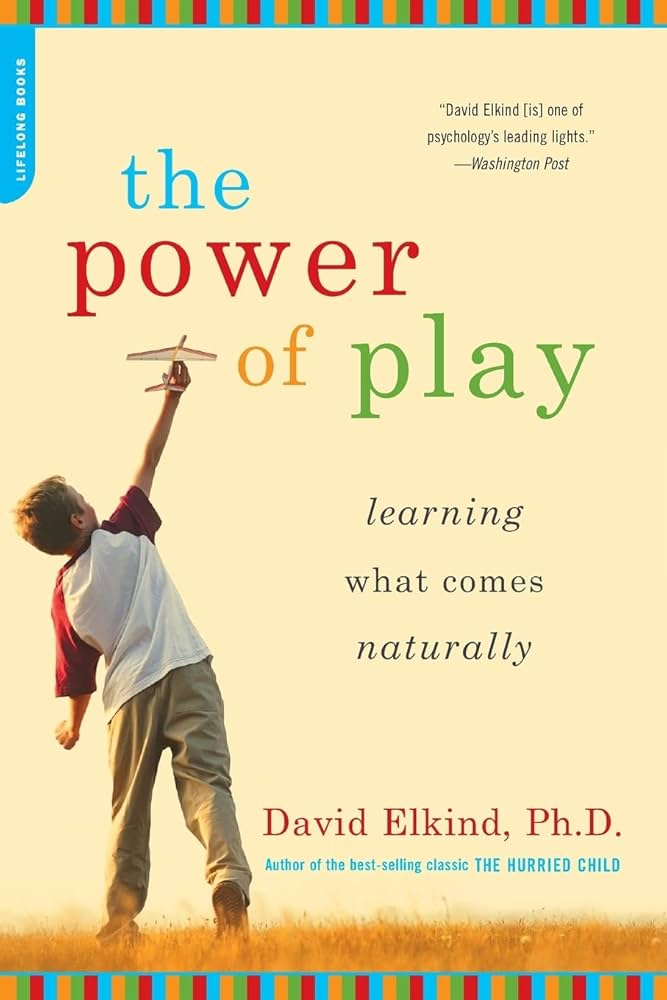
The Power of Play by David Elkind
The **Power of Play** is a remarkable book by David Elkind that delves into the critical role of play in child development. This book provides an in-depth analysis of how **play** influences cognitive, social, and emotional growth. It emphasizes the importance of allowing children to engage in unstructured, imaginative activities and how this free play contributes to their overall well-being.
Introduction
**Play** is often seen as a simple and frivolous activity, but in reality, it is a vital component of **childhood development**. David Elkind explores the various dimensions of **play**, its benefits, and the consequences of a play-deprived childhood. Through a comprehensive study, he illustrates how **play** shapes a child's brain, enhances learning, and fosters creativity.
The Essence of Play
At its core, **play** is a natural and spontaneous activity that is crucial for **children's development**. It allows children to experiment, explore, and understand the world around them. According to Elkind, **play** is not just a break from serious learning but a pathway to deeper understanding and **growth**.
Types of Play
**Play** can be categorized into different types, each serving a unique purpose in the development of a child:
| Type of Play | Description |
|---|---|
| Physical Play | Activities that involve physical movements such as running, jumping, and climbing. |
| Constructive Play | Building and creating with materials like blocks, sand, and Legos. |
| Pretend Play | Imaginative activities where children create scenarios and roles, often referred to as make-believe. |
| Social Play | Interactions with peers, including games and group activities. |
Benefits of Play
The **benefits of play** are numerous and multifaceted. Here are some key advantages highlighted by David Elkind:
- Cognitive Development: **Play** enhances brain function, improves memory, and fosters problem-solving skills.
- Social Skills: Through **social play**, children learn cooperation, negotiation, and conflict resolution.
- Emotional Regulation: **Play** helps children understand and manage their emotions.
- Creativity and Imagination: **Pretend play** encourages creative thinking and innovation.
Modern Challenges to Play
In today's fast-paced and technology-driven world, the **opportunities for play** are diminishing. Structured schedules, academic pressures, and screen time are significant barriers to **free play**. David Elkind emphasizes the need for parents and educators to recognize the value of **play** and ensure that children have ample time and space for unstructured activities.
The Role of Parents and Educators
**Parents** and **educators** play a crucial role in fostering an environment conducive to **play**. They can provide resources, create safe play spaces, and encourage children to engage in various types of play. By understanding the significance of **play**, adults can support children in their journey towards holistic development.
Practical Tips for Encouraging Play
Here are some practical tips for parents and educators to promote **play**:
- Provide Diverse Materials: Offer a variety of **toys** and materials that stimulate creativity and imagination.
- Create Safe Play Spaces: Ensure that children have access to safe and engaging **play** environments.
- Encourage Outdoor Play: Outdoor activities provide physical exercise and a connection with nature.
- Limit Screen Time: Reduce the time spent on electronic devices to promote **active play**.
Conclusion
The **Power of Play** by David Elkind is a compelling exploration of the essential role of **play** in child development. It provides valuable insights into how **play** shapes cognitive, social, and emotional growth. By understanding and embracing the **power of play**, parents and educators can support children in reaching their full potential.



